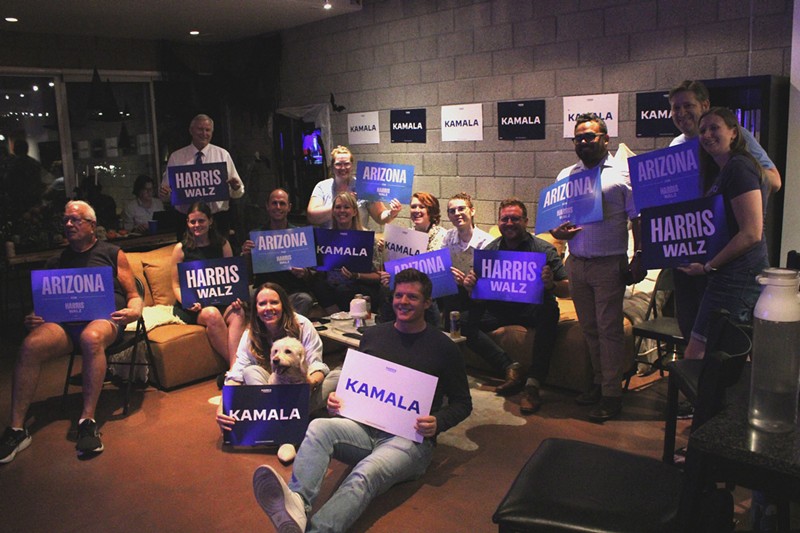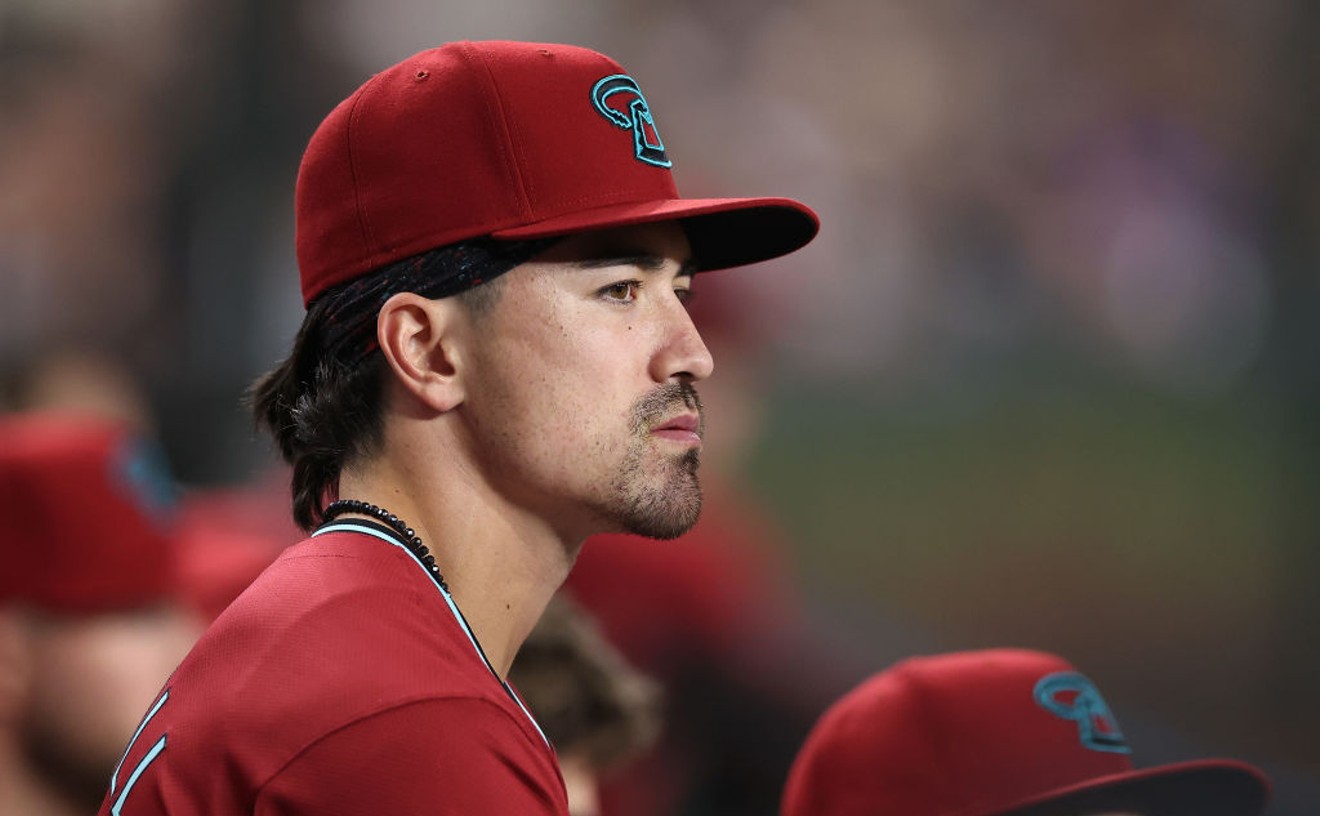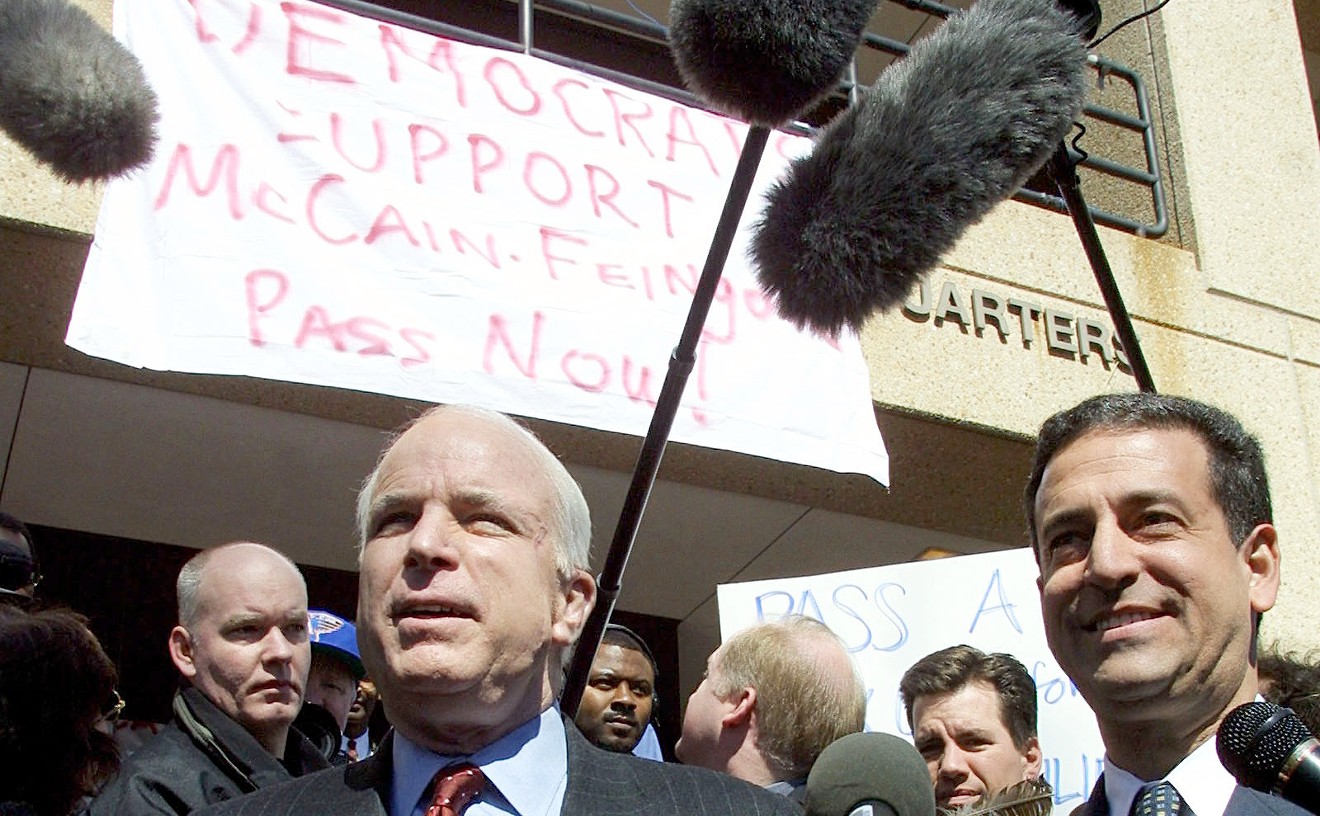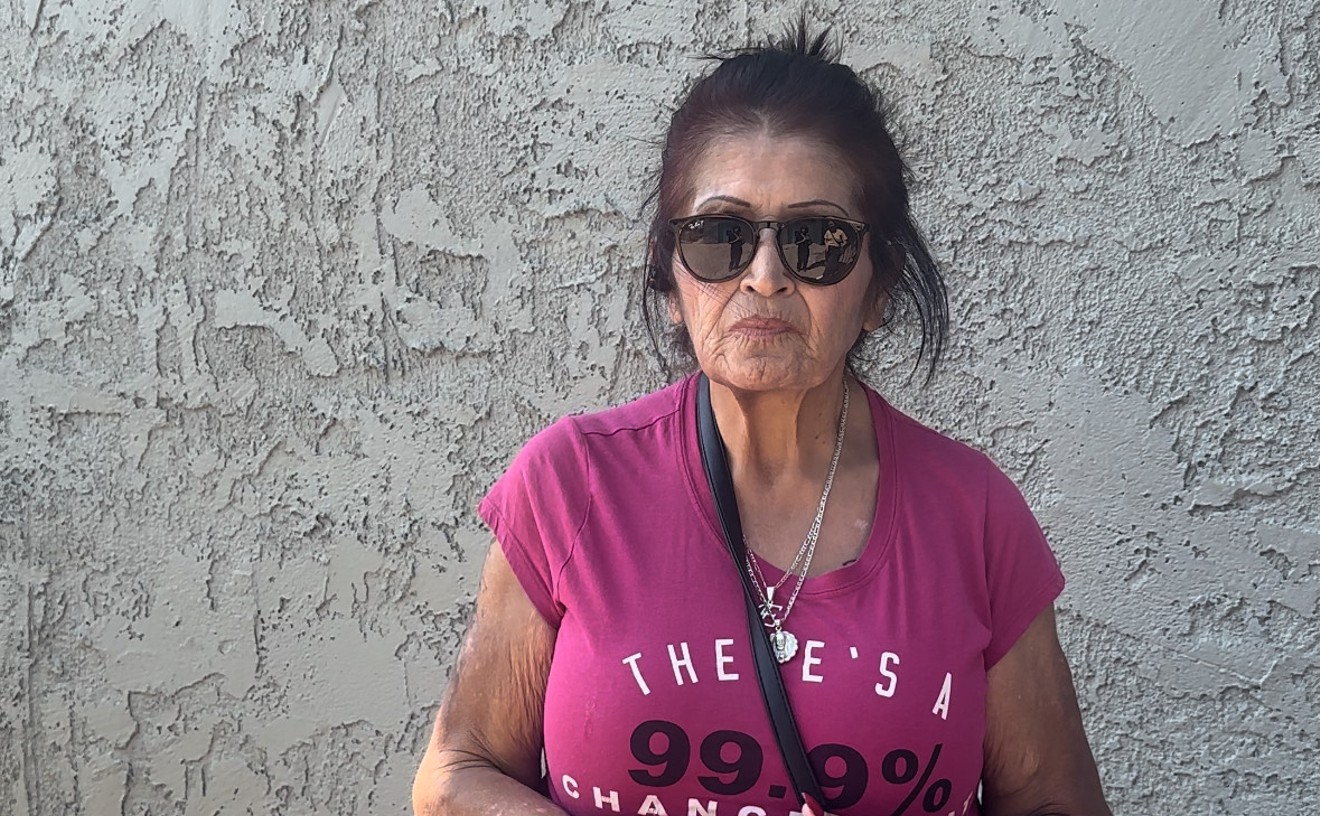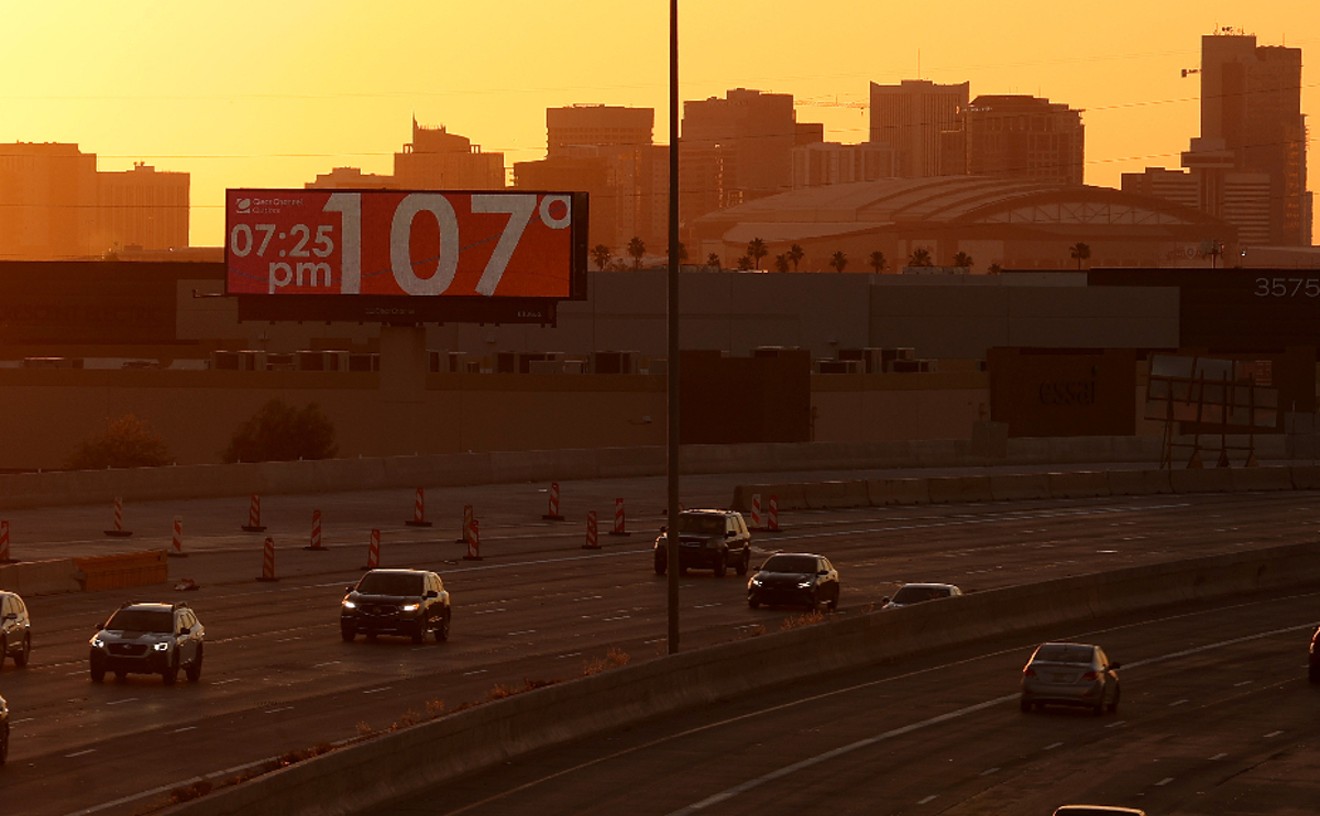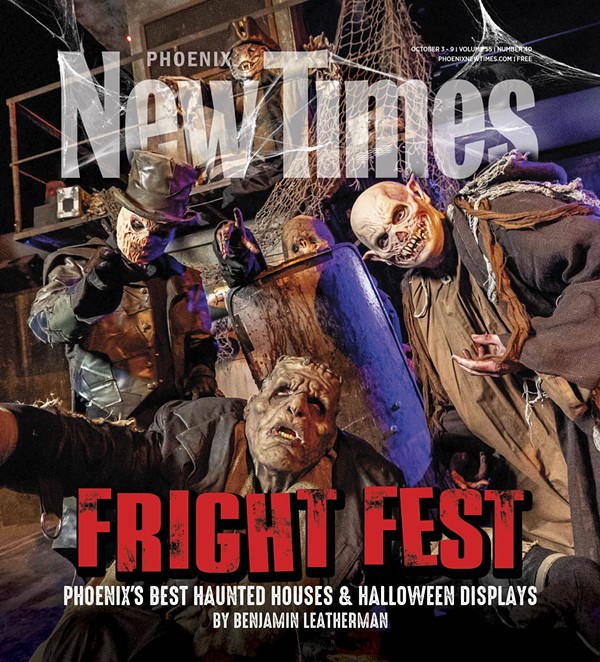A mother of four children, Price had been excited to welcome her fifth. But then complications struck. Price was “essentially hemorrhaging to death,” she said, and terminated her pregnancy to save her life.
Price is pro-life. She doesn’t support abortion across the board, but she believes fervently in making exceptions for rape, incest and the life of the mother. Still, when the 2020 election rolled around, she cast her vote for Donald Trump, whose hand-picked Supreme Court justices would vote to overturn Roe v. Wade a few years later.
Price now calls that vote “one of my biggest regrets.”
"Democracy was being threatened,” Price said. “The candidate I had voted for did not embody integrity, compassion, decency and was really extremist.”
After the Jan. 6 insurrection at the U.S. Capitol in 2021, the Mesa resident changed her views. A lifelong Republican and a devout member of the generally conservative Church of Jesus Christ of Latter-day Saints — commonly known as the Mormon church — she’ll be supporting Democratic Vice President Kamala Harris in November.
And she’s far from alone.
Tuesday night, a group of like-minded people gathered to watch the vice presidential debate between Republican Ohio Sen. J.D. Vance and Democratic Minnesota Gov. Tim Walz. Hosted by the Latter-day Saints for Harris-Walz Advisory Committee, the watch party was hardly a raucous affair — roughly 18 people attended — but its existence is notable nonetheless.
Support for Republicans in the Latter-day Saints community has waned since Trump first ran for office in 2016, according to a study by the American Communities Project. In 2012, when church member Mitt Romney ran for the presidency, 73% of voters in “LDS Enclaves” voted Republican. Four years later during Trump’s first presidential run, that percentage dropped significantly to 47%. It rebounded slightly to 59% in 2020 but remains well below that of past Republican candidates.
Trump’s attempts to overturn the 2020 election also turned off many Latter-day Saints voters. The church believes “the constitution was divinely inspired,” explained committee co-chair and former Mesa Vice Mayor Claudia Walters. Trump’s disregard for American democracy’s central document “changed everything” for her. After Jan. 6, she said, "There was not even one minute of contemplating that I’d vote for Donald Trump."
Other prominent Latter-day Saints politicians have also turned away from Trump. As a senator, Romney twice voted to convict Trump during the former president’s two impeachment trials. Former Arizona House Speaker Rusty Bowers resisted Trump’s attempts to undermine the 2020 election in Arizona, and Mesa Mayor John Giles has publicly thrown his support behind Harris.
There are 442,879 Latter-day Saints in Arizona, according to the church’s website. Though not all of them are of voting age, they represent a big chunk of votes up for grabs in a state that Trump lost by roughly 10,500 votes four years ago.
If Trump loses, it could be because more and more church members can’t stomach him or his brand of politics.
"I didn't leave the Republican Party, the Republican Party left me,” Walters said. "Now we have had conspiracy theorists, we have had election deniers, we have had what I would call the right-wing fringe take over the institutional part of the Republican Party.”
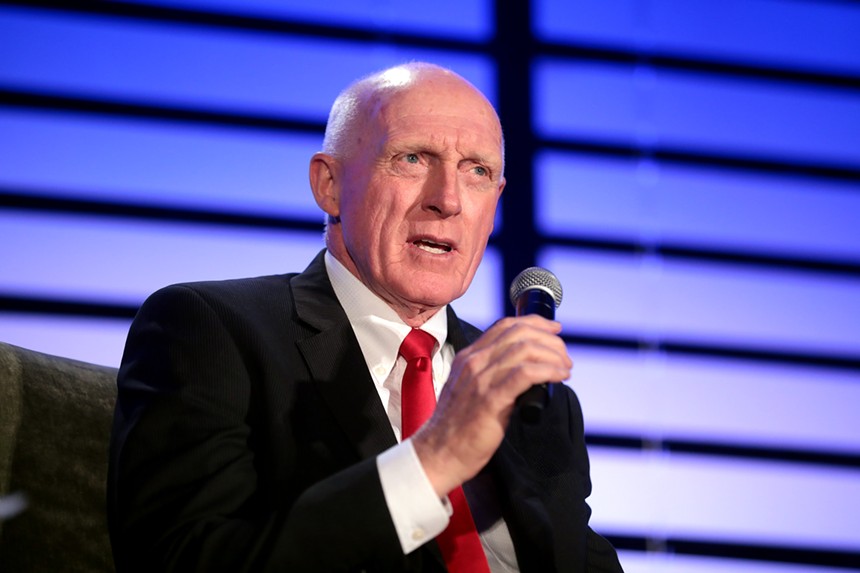
Arizona House Speaker and Church of Jesus Christ of Latter-day Saints member Rusty Bowers resisted Donald Trump's attempts to subvert the 2020 election in Arizona.
Gage Skidmore/Flickr/CC BY-SA 2.0
‘They are not alone’
For Tuesday’s debate, church advisory committee members gathered in a cozy two-story midtown Phoenix townhome decked out for Halloween. There were witch hats, spiderwebs and bat decorations — and, of course, Harris-Walz campaign signs. Attendees ate Barro’s pepperoni pizza and snacked on sliced cheeses as Vance and Walz squared off.Compared with Trump’s chaotic debate against Harris last month, the Vance-Walz showdown was coherent and civil — though Vance did attempt to pass off the same Trump lies with a kinder smile and better sentence structure. Watch party attendees clapped and hooted when Walz said his ticket was “pro-women” and that “a president’s words matter” — and when he asked Vance if he’d pick democracy over Trump, a question Vance didn’t directly answer.
“I really appreciate the Harris-Walz focus on bipartisanship, looking to the future and trying to solve problems in a real way,” said Kim Martineau, a mother of four who works for a legislative policy technology company. “It was a more cordial debate, more of an exchange of ideas. I think that’s a good direction.”
To be sure, the church members at the debate watch party are fully in the tank for Harris. Weeks earlier, the Arizona arm of the Harris campaign organized the advisory committee to attract Latter-day Saints voters in the East Valley. Walters joined because she wants to show fellow church members who don’t support Trump that they aren’t alone and have another option.
"I found in the last election that young women were approaching me and saying, 'Do I have to leave the church if I'm going to feel this way politically? Because I feel like I'm the only person in my whole congregation who feels this way,’" Walters said. "I need people to know that they are not alone.”
Though they might not agree with all of her policy goals, these Latter-day Saints voters find Harris to be a “candidate that is compassionate and kind and has integrity and is willing to compromise,” as Price put it. Harris’ stance on reproductive rights swayed several at the watch party.
After Phoenix resident Monica Chabot miscarried in her second trimester earlier this year, she had an abortion to protect her life — two months before the state Supreme Court reinstated Arizona’s 1864 near-total abortion ban. (That ban has since been repealed.) The experience was like “jumping into a pool of freezing cold water” and pushed her to get politically involved.
"I want a president that I can look up to and feel proud of, and that's what Kamala is," Chabot said. "I think that she's very well-spoken, and I would be proud to have her represent me as a woman, but also our country."
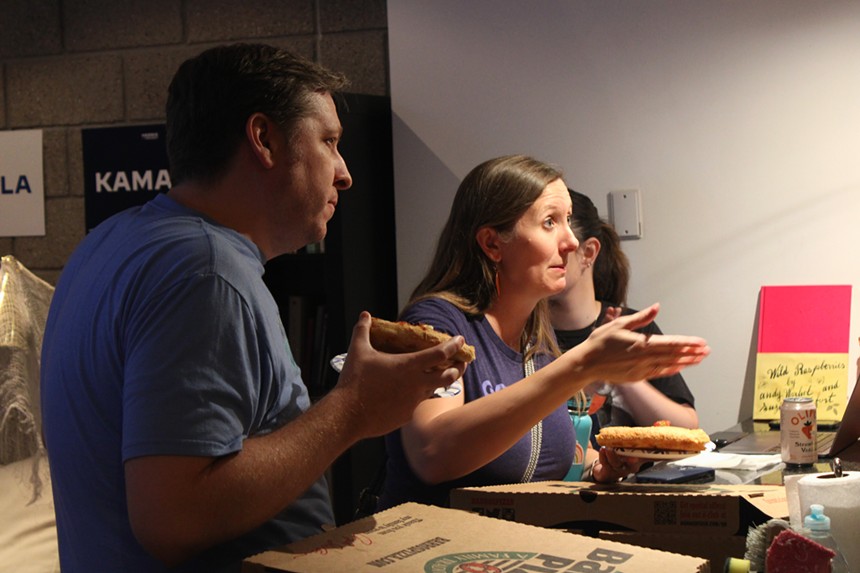
Kim Martineau stands with her husband at a vice presidential debate watch party for the Latter-day Saints for Harris-Walz Advisory Committee.
Morgan Fischer
Making inroads
Of course, the Latter-day Saints community is not a monolith, and plenty of church members remain staunchly pro-Trump. As many of these women have moved away from the traditional Republican politics of the church — influenced by the church’s and GOP’s shared pro-life beliefs — they haven’t been met with complete understanding and acceptance.When Price posted on social media that she attended Harris’ July rally in Glendale, she faced pushback, shaming and the regurgitation of right-wing rhetoric. Price has tried to hold open conversations with many of her pro-Trump family members and friends, but not all of those talks have gone smoothly.
"One of my parents really came down on me and was very unkind and told me that they were going to remove me from being the executor of their estate," Price said. "And just told me terrible things about being under the influence of Satan and all kinds of crazy stuff."
Others have made inroads. Martineau said it’s sometimes been hard “to feel like I'm the only one that feels differently,” so she’s reached out to friends and family of the faith who “might be growing more and more uncomfortable with the idea of voting for Donald Trump” after joining the committee. The responses have been generally positive.
Despite the committee’s efforts, Republican loyalty will remain strong in the East Valley’s Latter-day Saints community. “We have a culture where there's this belief that members of the church are Republicans, that they only vote Republican," said Walters. She hopes her group will at least convince church members that they have "permission to go against cultural norms."
Throwing the state’s electoral votes to Harris wouldn’t hurt, either. As Martineau noted, Latter-day Saints “tend to vote in pretty high numbers.” Whoever wins their hearts and minds might win the Oval Office.
"A lot of members of the church are changing the way they vote and are supporting Kamala Harris instead of Donald. I think that can be at least a part of that swing of voters in the middle that help turn Arizona blue again," Martineau said. "That's the hope."

